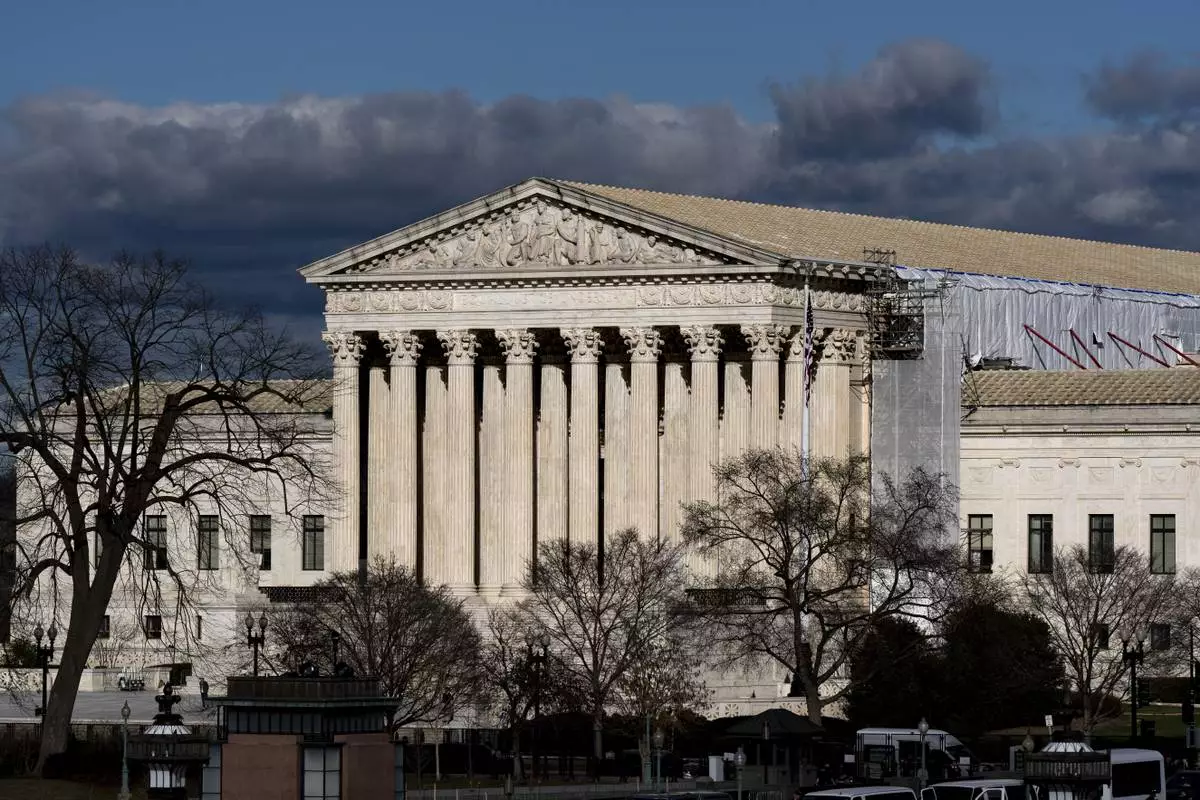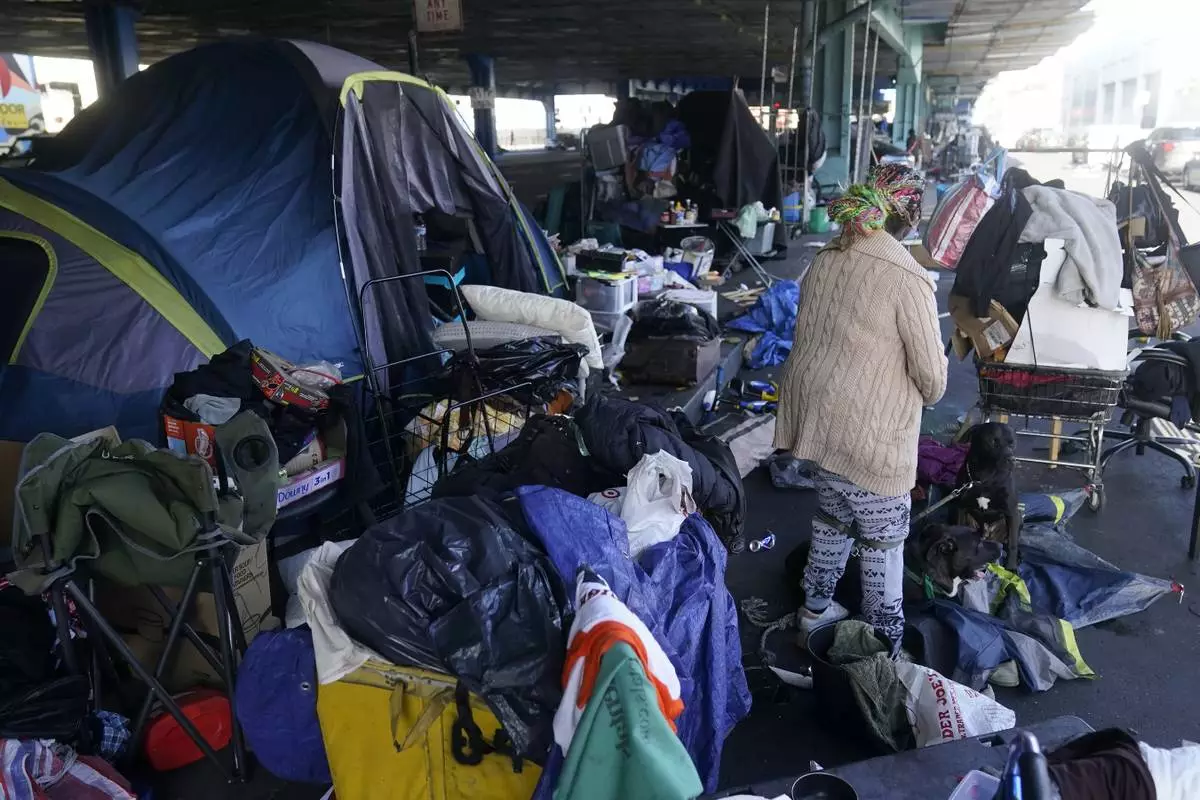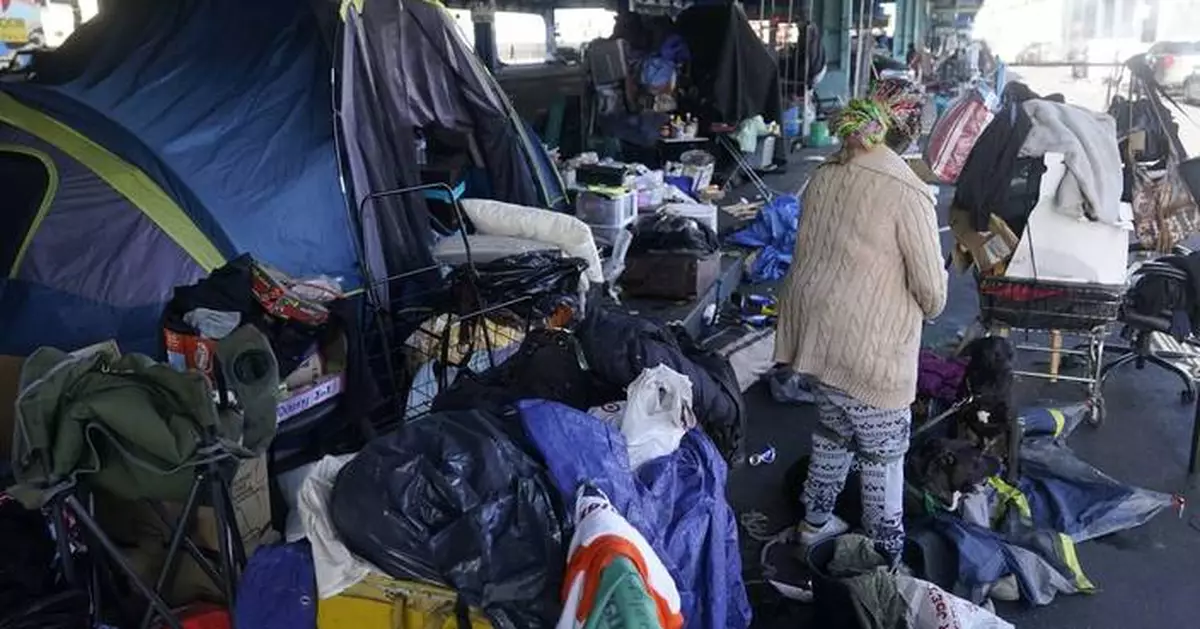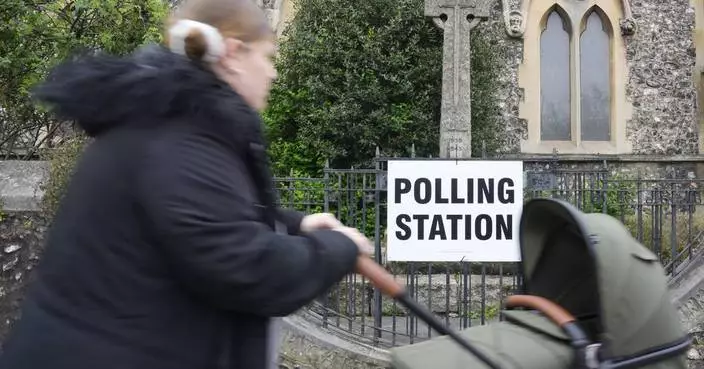WASHINGTON (AP) — The most significant case in decades on homelessness has reached the Supreme Court as record numbers of people in America are without a permanent place to live.
The justices on Monday will consider a challenge to rulings from a California-based appeals court that found punishing people for sleeping outside when shelter space is lacking amounts to unconstitutional cruel and unusual punishment.
A political cross section of officials in the West and California, home to nearly one-third of the nation's homeless population, argue those decisions have restricted them from “common sense” measures intended to keep homeless encampments from taking over public parks and sidewalks.
Advocacy groups say the decisions provide essential legal protections, especially with an increasing number of people forced to sleep outdoors as the cost of housing soars.
The case before the Supreme Court comes from Grants Pass, a small city nestled in the mountains of southern Oregon, where rents are rising and there is just one overnight shelter for adults. As a growing number of tents clustered its parks, the city banned camping and set $295 fines for people sleeping there.
The 9th U.S. Circuit Court of Appeals largely blocked the camping ban under its finding that it is unconstitutional to punish people for sleeping outside when there is not adequate shelter space. Grants Pass appealed to the Supreme Court, arguing the ruling left it few good options.
“It really has made it impossible for cities to address growing encampments, and they’re unsafe, unhealthy and problematic for everyone, especially those who are experiencing homelessness,” said lawyer Theane Evangelis, who is representing Grants Pass.
The city is also challenging a 2018 decision, known as Martin v. Boise, that first barred camping bans when shelter space is lacking. It was issued by the San Francisco-based 9th Circuit and applies to the nine Western states in its jurisdiction. The Supreme Court declined to take up a different challenge to the ruling in 2019, before the solidification of its current conservative majority.
If the decision is overturned, advocates say it would make it easier for cities deal with homelessness by arresting and fining people rather than helping them get shelter and housing.
“In Grants Pass and across America, homelessness has grown because more and more hardworking people struggle to pay rent, not because we lack ways to punish people sleeping outside," said Jesse Rabinowitz, campaign and communications director for the National Homeless Law Center. Local laws prohibiting sleeping in public spaces have increased at least 50% since 2006, he said.
The case comes after homelessness in the United States grew by 12%, to its highest reported level as soaring rents and a decline in coronavirus pandemic assistance combined to put housing out of reach for more people, according to federal data. Four in 10 people experiencing homelessness sleep outside, a federal report found.
More than 650,000 people are estimated to be homeless, the most since the country began using the yearly point-in-time survey in 2007. People of color, LGBTQ+ people and seniors are disproportionately affected, advocates said.
Two of four states with the country's largest homeless populations, Washington and California, are in the West. Officials in cities such as Los Angeles and San Francisco say they do not want to punish people simply because they are forced to sleep outside, but that cities need the power to keep growing encampments in check.
“I never want to criminalize homelessness, but I want to be able to encourage people to accept services and shelter,” said Thien Ho, the district attorney in Sacramento, California, where homelessness has risen sharply in recent years.
San Francisco says it has been blocked from enforcing camping regulations because the city does not have enough shelter space for its full homeless population, something it estimates would cost $1.5 billion to provide.
“These encampments frequently block sidewalks, prevent employees from cleaning public thoroughfares, and create health and safety risks for both the unhoused and the public at large,” lawyers for the city wrote. City workers have also encountered knives, drug dealing and belligerent people at encampments, they said.
Several cities and Democratic California Gov. Gavin Newsom urged the high court to keep some legal protections in place while reining in “overreach” by lower courts. The Martin v. Boise ruling allows cities to regulate and “sweep” encampments, but not enforce total bans in communities without enough beds in shelters.
The Justice Department also backed the idea that people shouldn’t be punished for sleeping outside when they have no where else to go, but said the Grants Pass ruling should be tossed out because 9th Circuit went awry by not defining what it means to be “involuntarily homeless."
Evangelis, the lawyer for Grants Pass, argues that the Biden administration's position would not solve the problem for the Oregon city. “It would be impossible for cities to really address the homelessness crisis,” she said.
Public encampments are not good places for people to live, said Ed Johnson, who represents people living outside in Grants Pass as director of litigation at the Oregon Law Center. But enforcement of camping bans often makes homelessness worse by requiring people to spend money on fines rather than housing or creating an arrest record that makes it harder to get an apartment. Public officials should focus instead on addressing shortages of affordable housing so people have places to live, he said.
“It’s frustrating when people who have all the power throw up their hands and say, ‘there’s nothing we can do,’” he sad. “People have to go somewhere.”
The Supreme Court is expected to rule by the end of June.

FILE - The Supreme Court is seen in Washington, March 7, 2024. The Supreme Court will hear its most significant case on homelessness in decades Monday, April 22, as record numbers of people in America are without a permanent place to live. The justices will consider a challenge to rulings from a California-based federal appeals court that found punishing people for sleeping outside when shelter space is lacking amounts to unconstitutional cruel and unusual punishment. (AP Photo/J. Scott Applewhite, File)

FILE - A woman gathers possessions to take before a homeless encampment was cleaned up in San Francisco, Aug. 29, 2023. The Supreme Court will hear its most significant case on homelessness in decades Monday, April 22, 2024, as record numbers of people in America are without a permanent place to live. The justices will consider a challenge to rulings from a California-based federal appeals court that found punishing people for sleeping outside when shelter space is lacking amounts to unconstitutional cruel and unusual punishment. (AP Photo/Jeff Chiu, File)














